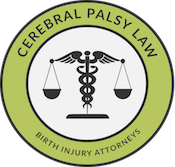Causes and Risk Factors Associated with Cerebral Palsy
Because it’s often difficult to pinpoint the exact cause of a child’s cerebral palsy, finding answers to your “how” and “why” questions can be both difficult and daunting. Additionally, navigating the confusing and complicated medical terminology behind cerebral palsy can make understanding the condition feel impossible. As leaders in the field of birth injury, our lawyers at Michigan Cerebral Palsy Attorneys are here to serve you not only as legal representatives, but as sources of clear and accessible information.
In this section we’ll help you understand the different causes and risk factors associated with your child’s cerebral palsy. First, we’ll briefly explain what it means for conditions to “cause” cerebral palsy versus what it means for certain conditions to be “risk factors” for cerebral palsy.
Causes of Cerebral Palsy
Cerebral palsy (CP), a general term for a variety of prolonged palsies, is caused by damages to the brain during its development. Often CP results from a lack of oxygen to the baby’s brain (hypoxia) or body tissues (asphyxia), premature delivery, or birth trauma. Unfortunately, these are sometimes due to the negligence of medical professionals during labor and delivery.
Some specific acts of medical malpractice that may cause cerebral palsy include:
- Failure of medical professionals to properly monitor and act upon problematic fetal heart tracings during labor and delivery
- Failure to detect a prolapsed or compressed umbilical cord
- Failure to diagnose and appropriately treat infections in the mother during the pregnancy
- Failure to perform a necessary cesarean section
- Negligent use of delivery instruments like a vacuum extractor or forceps
Risks Factors for Developing Cerebral Palsy
The risk factors for developing cerebral palsy are the conditions that increase a child’s chances of developing CP. These predispositions do not necessarily cause cerebral palsy, but physicians and parents should identify and closely monitor them from the beginning of the pregnancy.
Some examples include prematurity, multiples (twins, triplets, etc.), untreated infection or jaundice, and birth complications that cause a lack of oxygen in the baby.
Cause and Risk Factors for CP: Categories
We’ve sorted these causes and risk factors into the five broad categories listed below. At Michigan Cerebral Palsy Attorneys we believe the first step in dealing with a CP diagnosis is knowledge and understanding. We encourage you to read through the resources on this site to better understand this condition and how and why your child may have developed it:
- Birth trauma
- Incorrect size and malpresentation
- Maternal health
- Labor and delivery problems
- Undiagnosed or untreated infant illnesses
Video: Causes and Risk Factors for Cerebral Palsy
Learn about the various causes and risk factors for cerebral palsy in the following video. Andrea Shea, registered labor and delivery nurse and member of the Michigan Cerebral Palsy Attorneys obstetrical nursing staff, discusses causes and risk factors for CP including premature birth, HIE, head trauma, jaundice, and more. Read the full transcript here.
